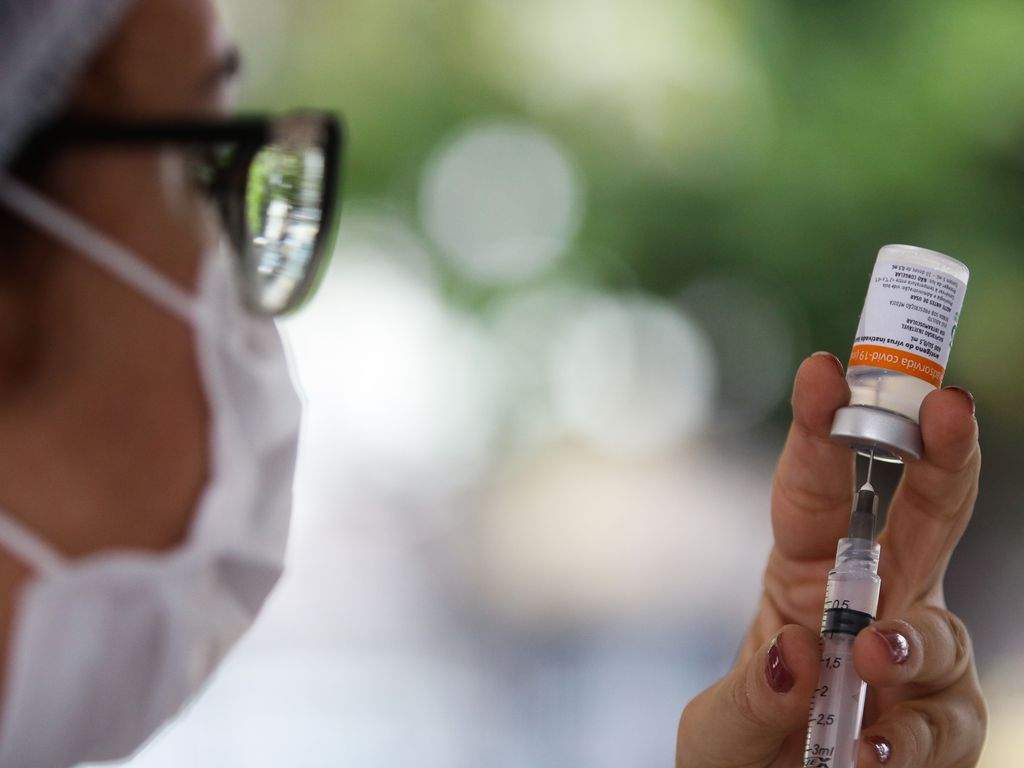
The progress of COVID-19 vaccination across the country has sparked some discussion and raised some doubts. The main ones relate to possible adverse reactions to the vaccine. One of the main complaints was pain at the injection site.
According to experts, this type of interaction is actually the most frequently seen in clinical studies of all fortifying agents and does not pose any health risks. but after all, Is the pain a reaction to a substance or is the ‘culprit’ the needle?
GP Erico de Oliveira explains that intramuscular injections, such as those used in vaccines available today, can cause localized pain through the needle and material. This is because the needle used needs to hit the muscle, which requires a slightly thicker gauge.
The specialist explains that the body reacts in the same way that it reacts when we step on a piece of glass, which leads to inflammation. The injection of the fluid can also cause a localized reaction.
“Most people don’t feel anything, or just have a little muscle soreness. This has to do with the volume of fluid injected as well. This has to take up space inside the muscle and can cause pain. If you press, you’ll have pain, if you make a movement in that muscle, it’s There is pain. Most people prefer to make the injection in the left arm so that it does not disturb the movement too much, “adds the doctor.
Vaccine components can also cause inflammation
Also, according to the expert, the components of the vaccine can also affect the pain. “And it certainly has to do with the substance that was injected there as well, which generates the inflammatory response later. […] Some vaccines are more responsive than others — and that’s okay.”
For those who feel uncomfortable with the pain, the recommendation is to make a cold compress only at the injection site, Oliveira recommends. “It gets better on its own and prevents diseases that are often catastrophic. It’s not an argument for not being prevented.”
Learn how to treat adverse reactions from Covid vaccines
Why can adverse reactions occur after vaccination?
According to infectious scientist Mounir Ayoub, vaccines are being produced to stimulate the production of immune antibodies. This process can lead to reactions, depending on each organism.
Vaccines are produced to stimulate the immune response through the production of immune antibodies. When the vaccine comes into contact with a disease-causing agent, that is, a virus or bacteria that causes disease, the person will be protected. This production is responsible for the variables between people. There are individuals who are more reactive, that is, they are more likely to have reactions”
What are the most common reactions?
With regard to the coronavirus vaccine, the most common reactions are fever and pain at the application site. Dizziness and body pain rarely occur,” says Ayoub
How long do these effects last? Are there more severe reactions?
An infection specialist explains that adverse reactions related to vaccines usually last one to two days. According to him, it is necessary to think about the cost-effectiveness of the vaccine.
“Vaccination is much more important than the dangerous side effects in the end. There are reactions that are more frequent, but they are very minor, which are resolved quickly,” he says.
He points out that the most serious and rare side effects can occur with any vaccine, not just the COVID-19 vaccine.
How do you treat reactions?
Ayoub notes that drugs that treat the most common side effects, fever and body aches, can be treated with pain relievers such as dipyrone. It is indicated that Anvisa (the National Health Surveillance Agency) does not recommend the use of paracetamol to treat vaccine reactions against COVID-19.
The infectious disease specialist also advises not to take painkillers or anti-inflammatory drugs in order to try to avoid reactions. “Analgesic as a preventative may eventually reduce antibody production,” he says.
Can reactions occur after the two doses?
Yes, according to the doctor’s opinion. Reactions can occur at both doses. It cannot be predetermined. Ayoub concludes that those who had reactions on the first application can and should take the second dose, unless they have a severe reaction, such as a clot.
* With information from Portal R7

“Wannabe internet buff. Future teen idol. Hardcore zombie guru. Gamer. Avid creator. Entrepreneur. Bacon ninja.”

